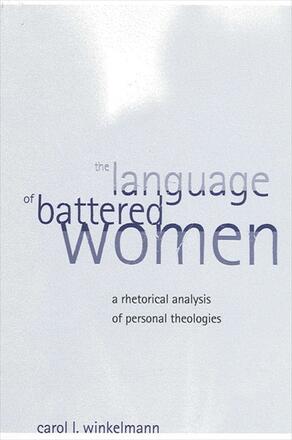
The Language of Battered Women
A Rhetorical Analysis of Personal Theologies
Alternative formats available from:
Shows how battered women's personal theologies help them survive and heal, despite the women's knowledge that religion may also have contributed to their oppression.
Description
Winner of the 2005 Outstanding Book Award presented by the Organization for the Study of Communication, Language, and Gender (OSCLG)
This study of battered women living in a shelter offers a rhetorical analysis of survivors' personal theologies. Author Carol L. Winkelmann holds that while it is virtually ignored in the domestic violence literature, the Christian heritage of many battered women plays a significant, if complicated, role in their language, thoughts, and lives. The women's religious faith serves not only to sustain them through periods of profound suffering, but also to develop solidarity with other culturally-different women in the shelter. Designed to assist women to greater independence, the shelter actually functions as a culture of surveillance where women turn to one another and to their faith to cope with the trauma of violence. To heal, the women engage in dialogue that is dense in religious imagery, talking about the relationship of God and the church to suffering and evil. At the same time, these women also acknowledge that organized religion is very much involved in the maintenance of patriarchal marriage and its attendant abuses in their own lives. Together, battered women are sometimes able to construct creative theological responses to the problem of suffering and evil. A mix of religious and secular languages compels them to devise new ways of thinking about their role in family, church, and society.
Carol L. Winkelmann is Associate Professor of English Language and Literature at Xavier University.